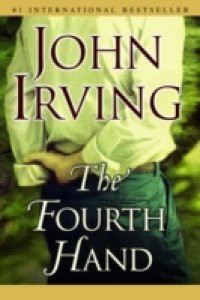';Imagine a young man on his way to a less-than-thirty second event the loss of his left hand, long before he reached middle age.'The Fourth Hand asks an interesting question: ';How can anyone identify a dream of the future?' The answer: ';Destiny is not imaginable, except in dreams or to those in love.'While reporting a story from India, a New York television journalist has his left hand eaten by a lion; millions of TV viewers witness the accident. In Boston, a renowned hand surgeon awaits the opportunity to perform the nation's first hand transplant; meanwhile, in the distracting aftermath of an acrimonious divorce, the surgeon is seduced by his housekeeper. A married woman in Wisconsin wants to give the one-handed reporter her husband's left handthat is, after her husband dies. But the husband is alive, relatively young, and healthy.This is how John Irving's tenth novel begins; it seems, at first, to be a comedy, perhaps a satire, almost certainly a sexual farce. Yet, in the end, The Fourth Hand is as realistic and emotionally moving as any of Mr. Irving's previous novelsincluding The World According to Garp, A Prayer for Owen Meany, and A Widow for One Yearor his Oscar-winning screenplay of The Cider House Rules.The Fourth Hand is characteristic of John Irving's seamless storytelling and further explores some of the author's recurring themesloss, grief, love as redemption. But this novel also breaks new ground; it offers a penetrating look at the power of second chances and the will to change.

